Meet the 2023 Guild Officer candidates

Education Officer – Alex Stanley
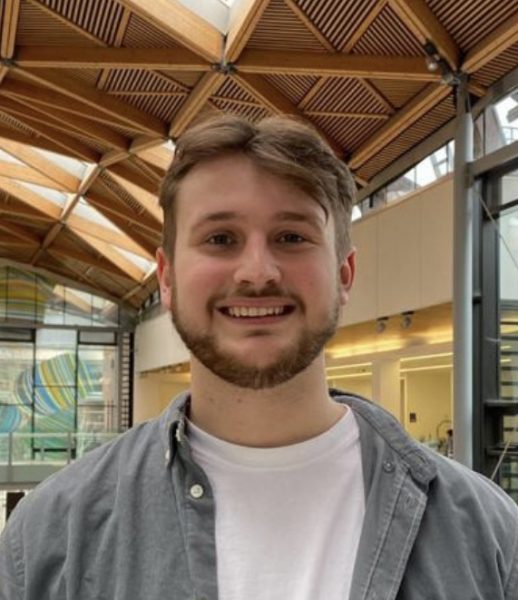
Hi, I’m Alex. I’m a third-year PPE student and I’m running for Education Officer. In my spare time, I’m the General Secretary of the Labour Society, I am also a member of the Futsal team. A lot of what I do is very much based on student activism; I’m involved in the £2 meal deal campaign, I was also on the picket line earlier today so yeah very much orientated around student activism and how I can help students at the University.
What made you want to be Education Officer?
I think the first thing that comes to mind was the University’s decision to bring self-certification mitigation from seven days back to three so that’s something that really sparked my interest. I actually spoke to Jack (current VP Education) about that earlier in the year and he recommended I think about running: from there I’ve realised that I just don’t think the University is doing enough for students’ education. We’ve taken steps back, so it’s all about coming up with clear policies on how I can help improve the lives of students.
What do you think the responsibilities of education officer are?
Obviously sitting in meetings with the Vice-Chancellor and other key figures, but I also think it’s important that I haven’t got a clear strategy. I know the Guild is very much focused on the idea of the individual, but I want to talk about what I would do if I got elected, and what I want to make sure is that I’m putting forward policies that are actually affordable and that I can argue for when I go into these big meetings. I’m focusing on six key main pledges: Bring self-certification mitigation back up to seven days, scrap Saturday exams, introduce a fairer late submissions policy, include an opt-out option for exams or modules where that’s possible, including part-time jobs as evidence for mitigation, and bring in new trained academic wellbeing officers.
How will you bridge the gap in attainment between students from different backgrounds?
I went to state school my entire life, I’m from East London and never went to private school. If we look at the pledges for instance, I had a part-time job throughout second year and I really, really struggled with that, meaning I didn’t do as well as I did in first year or as well as I’m doing this year. So, for me, it is really important that people are not disadvantaged because of their economic background. I think the Guild has done a good job in lobbying the University for a hardship fund, but I do think that the part-time jobs as evidence for mitigation could help with this because I just felt so much pressure in terms of managing my time with work and university deadlines.
How would you have supported students during the ucu strikes?
My position this time round has been that I support the strikes since I think university staff have not been treated well by the University. At the same time, I recognise that not everyone will agree with me, so I would recommend that the University has a referendum, for students, on whether they should be supporting the strikes or not. At the end of the day, the job of the Students’ Guild is to listen to students.
What is your biggest weakness?
Biggest weakness? That’s a good one! I would say, that sometimes, I probably take on a bit too much and I need to get better in terms of prioritising. I very much like to get involved in all the activism, sports, and societies, but at the same time that can get a bit overwhelming, especially going into a role like this. It would be useful to have a better understanding of time management and what I should be prioritising to help students.
What is your most memorable night out in Exeter?
I played in the five-a-side league last year and my team managed to get promoted on the last day of the season and that also happened to be the same day Exeter City got promoted. I remember going to TP and bumping into loads of the players and that was just completely surreal you know. Venom in one hand, taking a selfie with the other! That was fun!
Communities & Equality Officer – Mia Robillard-Day
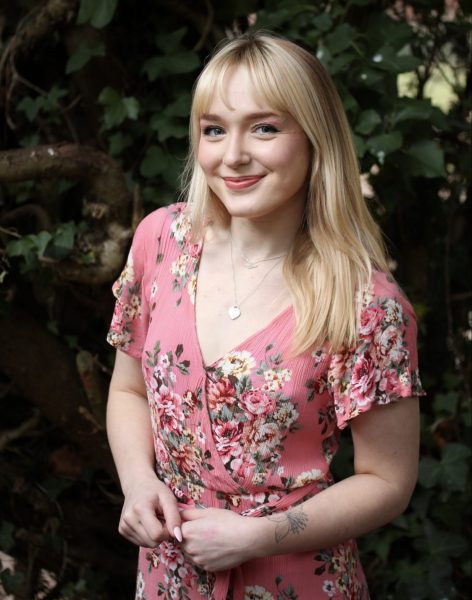
My name is Mia. I do Art History and Drama with employment experience. I was supposed to do a study abroad year, but COVID, alas. I’m in my final year and I go to the gym a lot, I do a lot of advocacy online — I do a lot of social media stuff to do with mental health and eating disorders. I do a lot of charity, I work with Beat a lot, which is an English eating disorder charity.
What made you want to be Communities & Equality Officer?
I’ve had a lot of negative experiences at the Uni myself as a disabled student and also watching how my friends have been treated a lot by the University, not just by students but also by lecturers themselves. I think that we have a huge issue in the way in which lecturers who are supposedly meant to be really educated in their fields, even lecturers who are lecturing on race theory and similar topics, say totally inappropriate things. My very close friend was asked multiple times how she speaks such good English when English is her first language. It’s just a continual issue within the University and during my year out I ended up making the equality and diversity and inclusion strategy for the company I worked for, which was the first strategy they’d had of that kind. I was able to put in place monthly training sessions on how to talk about certain topics, and that’s something that I would really like to put in place in the role; platforming different students’ voices to make it a better and more educated space in general, so that students feel safe.
How will you ensure all groups and communities are represented by the Guild?
I think what’s really important and an issue that continually happens in roles like this, especially taken on by white students, is we tend to homogenize different minority groups, when actually their concerns are all very unique. Rosemary Campbell Stephens termed the term ‘Global Majority’, which includes Black, Asian, Brown, dual heritage, indigenous to the global South and all have been racialized as ethnic minorities. These groups make up around 80 per cent of the world’s population but I think we often overlook what a huge role these groups have in our student body. I would like to find ways to make sure that their unique voices are platformed such as holding more forums and training sessions and having that as paid opportunities for students.
What do you think is one underrepresented group that the Guild could be doing more to support?
I think that almost every minority group is underrepresented in its own way. I think because of the ways in which we talk about different ethnic groups and different minority groups we bunch it into one issue. I represent the disabled community but am only representative of a very small part of that community because I’m autistic, so I’m not physically disabled, so I don’t understand entirely the concerns of other students who may have physical disabilities. With autism, I know that I’ve had a lot of really negative experiences: once a boy shouted across the class ‘You’re so autistic’, and when I told my lecturer about it he didn’t deal with it, I had to deal with it myself. There’s a massive issue with putting it back onto that group to do that labour of explaining ourselves when really we should be protected by the Guild and by staff members. It’s really important that in the Guild we have people who are part of minority groups that can understand, and even if they’re not from that group, can listen with empathy.
What is your biggest weakness?
I would say my biggest weakness is that I do struggle sometimes with crowds. Because of my autism, I have to do things a little bit differently, so I think that I can struggle in bigger groups and sometimes with public speaking. Some things coming up in this election such as hustings I might find really difficult and may have to ask for accommodations, but I think it’s important that we show those accommodations, especially in the spotlight of different people.
What is your most memorable night out in Exeter?
Oh my gosh. I’m not a big clubber, but one night we went to Unit 1 and my friend found an inflatable microphone which was quite funny. She was was going around talking to everyone with the microphone and asking them ridiculous questions, that was quite fun.
Communities & Equality Officer – Khurram Usman
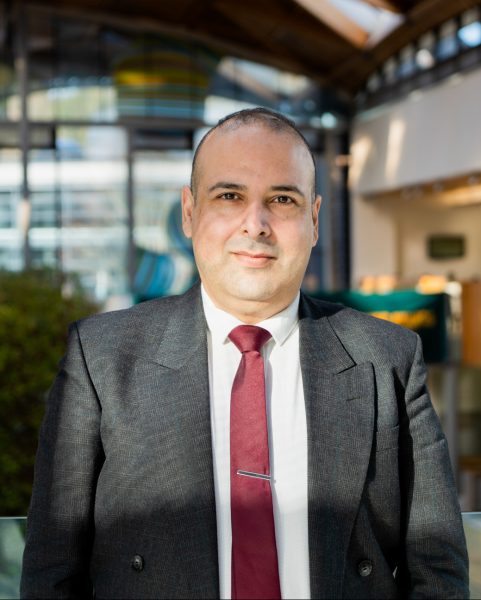
I am a PhD student, and my research is in Law. I am also the currently the incumbent President of The Diplomatic Hub. It’s an amazing opportunity to work with students who come from different parts of the world to understand their narratives and think about what we can do better for them. I am qualified from Pakistan, and I came to the UK, where I did an LLM and now I am doing a PhD.
What made you want to be Communities & Equality Officer?
I have an Asian background and I come from a place that was part of colonies for some time. When you come from this part of the world, you interact with the West so there is a big gap in the understanding of the people. So, if someone turned up from these communities, they would represent them and that could make a big difference at the uni. They could express the views of the students in a manner that explains how these communities think, or what we need to make better institutions. These are students who will come from different communities. They will feel better, and it will create a more inclusive society rather than a divisive society. Division is a big problem in the world; people see each other’s colour, language, and background, but they do not see the human being.
How will you ensure all groups and communities are represented by the Guild?
For the past year working in the World Society, I got experience in how to engage the views of students. It’s really difficult to accommodate them, but I will show flexibility. I will give them honour; I will listen to them and provide them with full opportunities that they should take on. You invite the students and say “okay, we are working on this task” or “we are working together”; you will take the lead and they will follow your instructions. So, in this way, you will accommodate other people, and you will build their trust. You will help and work with them, and this is a way of engaging people.
What do you think is one underrepresented group that the Guild could be doing more to support?
I think that the Guild should focus on master’s students because they come to university for one year, and they are financially squeezed because Exeter is a difficult and expensive place in terms of accommodation. The Guild should focus on how they can engage these students. They are working part-time and are coming to uni classes and when they start working outside, they will lack the focus on their studies and will often not turn up to lessons. So, they should think about how they can improve their experience and help them focus on their modules, whilst creating a more inclusive society and giving them more opportunities.
What is your biggest weakness?
I can feel the pain of other people. When we see a dilemma or disaster, such as the War in Ukraine where people were just running away. It was a terrible moment to witness. It is very difficult for me when I see something bad happen- ing and people are crying but I’m not able to help them. It’s a very big weakness of mine where I want to accommodate and help people, but I cannot do that.
What is your most memorable night out in Exeter?
Last month, we invited the Spanish Ambassador to Exeter. He came here and we talked with him about his experiences as a seasoned diplomat for forty years. We walked around the city with him, and it was very nice. We also introduced many students to him at a networking event. I think that’s the best experience that I’ve had in Exeter so far.
Societies & Employability Officer – Rhys Wallis
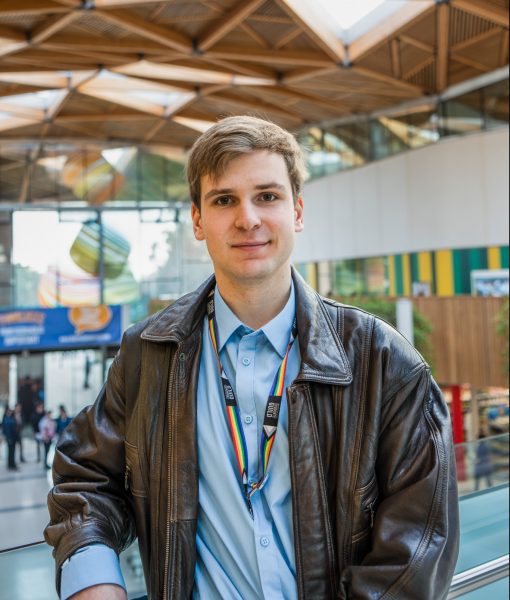
I’m Rhys. I’m a third year, well, final year – crikey it feels real now – doing PPE. I say “doing PPE”, I’m mainly in the societies and I also sometimes attend PPE courses. I’m quite heavily involved in XPression FM, but I also like my football and do a bit of refereeing on the side. And every now and then I play quite badly at netball.
What made you want to be Societies & Employability Officer?
I think at university you have two sides to the university experience: You’re there for your course but you’re also there to get involved in things that take your interest. I aim to be on the side of society committees and to ask and implement change where needed, especially with some of the issues we’ve seen in recent years. In my candidate statement, I said that I wanted to address the room booking system, which was very annoying and frustrating to use. So being able to be that intermediary between what needs to be done and the people who need to be doing it was an opportunity I couldn’t say no to.
How will you make sure societies can rely on the Guild to support them effectively?
It’s all about ascertaining where student society priorities are. I think that’s why I’m a little bit concerned about how far away the election is from the start of next term. With the physical election campaign being from February 20th to February 23rd and the voting taking place over those last two days, it’s going to be quite difficult to maintain the same set of student priorities going into when the elected officers term starts on June 26th, when the actual academic term starts in September. It’s all about being in a position to use that time in-between February and the start of taking on a role, if I were to be elected, to go around and make sure that those people who are in the best position to tell us where we can help get that comment across, so we can really hit the ground running. A lot of the work has to be done in the university “off ” season. There’s only so much that elected officers, and anyone, can do during the university term. Often, a lot of it is fighting fires that appear, and then you’re so busy fighting one that you don’t have time to look at the long-term goals. So, that’s why it’s so important to hit the ground running and make sure you use that lead-in time really effectively.
What is the biggest challenge you will face in the role?
Probably being able to balance the needs of all 300 societies at the University such as ensuring that all societies have equal access to facilities around campus. This role will have to be a listen- ing exercise, learning in the role but I’m hoping to draw on my experience working on XPression FM to be able to balance where we need to focus the attention and resources at the Guild’s disposal to make sure we can call ourselves a properly inclusive and accessible area.
What is your biggest weakness?
If I’m not doing something, then I’m probably just sitting around waiting for something to happen. I need to get a little bit better at the proactivity side of things. If I’m on a roll, then I’ll keep going and going – good luck getting something on a to-do list! But if there’s a bit of a lull between points, then it can be quite hard to think “oh yeah, no, that’s the next thing I need to be doing. Let’s drag that one in here”. I think, hopefully, that can be masked by never really having any downtime as Societies & Employability Officer. There’s always going to be something going on, so I’ll be able to keep jumping from task to task.
What is your most memorable night out in Exeter?
It’s a bit of a contradiction because my most memorable night out was probably the one I least remember. It was the most recent XMedia Christmas Ball and it was a good excuse to let loose after what was a taxing term. When you’re in Fever with people who had their shoes off, you know you’re in for a good night.
Student Living Officer – Pip Shaw
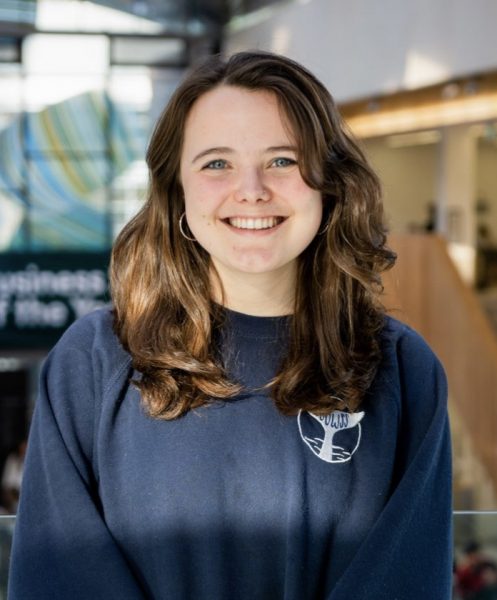
I am a third year, I’ve been doing English, and I absolutely love it, it’s been really fun! But I also have a maths background, so the finance aspect of this role should be okay. I am also the Director of the Exeter Soul Choir so I do a lot of music in my free time.
What made you want to be Student Living Officer?
I had some real nightmares with housing last year in my second year, and this is actually a new role, and I was scrolling through the emails and reading all about the different roles, and when I read about this one and being responsible for student finances, housing, living and wellbeing, I thought that is exactly what I would have needed in second year. So I thought about it for a while and thought I could do a really good job. I know all the struggles of housing, all the struggles of finance, and I think that might actually quite help me in the role.
As this is a new role, how will you help define it?
It’s quite a big bracket — student living is a massive thing to tackle. But in the polls the Guild did recently, finances were the main concern for students going forward because we aren’t getting bigger student loans but everything is getting more expensive, and housing was second because there are so many more students, it’s gone up by 25 per cent in the last five years and there’s not much more student housing, so it’s been really difficult, and I’ve found it really difficult in the last few years to balance financing and housing, so I’m not surprised that those are the two main concerns. So that would be the main focus that I would go into it with, but that might change.
What do you think the Guild can do to help students with housing issues?
I think the first thing we need to do is have a really specific lecture or advice platform, particularly for freshers, because we all went into it totally blind, and once you get into second or third year you know how it works, you know when the rush is, you know when to start looking. But I remember as a fresher being so confused and so overwhelmed, and not knowing, so I think we need really specific advice and support for that October period when everyone starts looking at housing. Also, I think it is really important that everyone knows going into it the really basic HMO regulations and standards because we were living in a horrible house in second year and we had no idea that it was all completely illegal and against the law.
What can be done to improve night safety for students?
I think Campus Security are really valuable but perhaps are not used in quite the right way. They are there to keep students safe but people don’t like Campus Security — I think it probably goes back to when us third years were in first year, I think no one liked Campus Security then! But I think they are a really good idea, I was thinking- of a service to escort students home or something, actually utilising Campus Security for safety things, particularly for freshers in accommodation, if you’re feeling unsafe. I think we should try to change the way people look at Campus Security and actually utilise them for student safety which is what they’re there for, rather than just day-to-day stuff.
What is your biggest weakness?
I take on way too much as I think anyone who knows me will tell you! I do tend to stretch myself quite thin, but I think that’s why I would be quite excited to fully commit to one thing because at uni there’s so many things that you can do that I feel guilty if I’m not doing all of them, whereas that this is actually a full-time role and is really specific and targeted, I think would be really good for me, because I fill up every minute of my day!
What is your most memorable night out in Exeter?
It was a friend’s birthday, Chev was completely full, so we went to George’s Meeting House, just having a few drinks and we realised at the table next to us there were these two people showing each other magic tricks. I asked “you guys are amazing, are you professional?” and they replied, “yeah we are, do you want to see?” they came over and gave us an hour-long magic show for free!
Note: Exeposé was not able to speak to Honey Bharat Somaya who is running for Societies & Employability Officer or Cavanagh Davis-Holmes who is running for Student Living Officer


